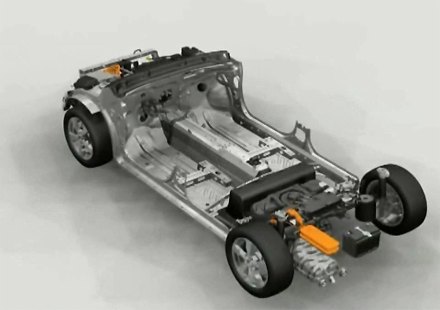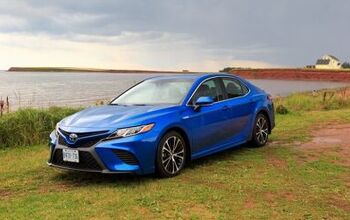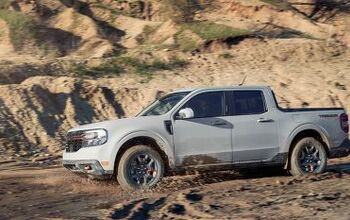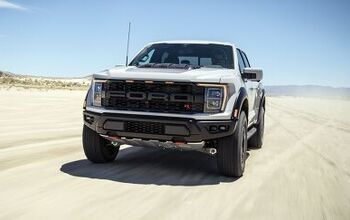Hybrids: Who Needs Them?

Plugins are range anxiety on wheels. Hybrids are expensive, and usually come with a payback time longer than the average lease. In some cases, longer than your life. Lugging a big battery and two engines around can defeat the purpose. Hybrids are also expensive to develop. In Europe, the strategy has been to improve the old ICE as much as possible. Midsize automakers in Japan go the same route, with sometimes surprising results. Their gasoline-powered cars beg the question: Why go to the hybrid trouble at all?
Next year, Mazda will release a compact car with a 3liter /100km (78 mpg) consumption, “making it the most efficient car of its size in the world,” says The Nikkei. [sub]. Mr. Piech will chuckle, or get mad when he hears that. His Lupo 3L hit the 3 liter mark in 1999, but it didn’t sell. The lightweight space-age materials made it too expensive. Mazda is going the same route, hopefully with more success. They developed a gas engine that is 15 percent more efficient than the current design and a new diesel mill that is 20 percent more efficient. Mazda also trimmed 100kg in weight from the body.
If coming in as advertised, the new Mazda would beat Honda’s Insight hybrid. It uses 3.33 l / 100km (70.6 mpg). Mazda hasn’t set a price yet, but promises it will be competitive with other compacts. Eyeing potential in emerging markets, with their growing middle classes, the company plans to sell its new engines to foreign automakers.
Suzuki will introduce a new Swift this fall with a 10 percent better mileage and no price premium.
Later this year, Fuji Heavy will equip its Subarus with engines that are 10 percent more fuel efficient. As a further savings measure, the larger models will get CVT transmissions.
Daihatsu said they will release a gas-powered minicar with the same fuel efficiency as a hybrid next year.
Mitsubishi Motors will launch a fuel-efficient compact next year. Production of some of the new cars will be moved to emerging markets.
Says the Nikkei: “Fuel-efficient models are becoming the top-selling car type worldwide. Hybrids are catching on in Japan and other rich nations but not in developing countries. Lacking the resources to develop their own hybrids, midsize automakers are focusing on tapping emerging-market demand with better gas-powered models.”

Bertel Schmitt comes back to journalism after taking a 35 year break in advertising and marketing. He ran and owned advertising agencies in Duesseldorf, Germany, and New York City. Volkswagen A.G. was Bertel's most important corporate account. Schmitt's advertising and marketing career touched many corners of the industry with a special focus on automotive products and services. Since 2004, he lives in Japan and China with his wife <a href="http://www.tomokoandbertel.com"> Tomoko </a>. Bertel Schmitt is a founding board member of the <a href="http://www.offshoresuperseries.com"> Offshore Super Series </a>, an American offshore powerboat racing organization. He is co-owner of the racing team Typhoon.
More by Bertel Schmitt
Latest Car Reviews
Read moreLatest Product Reviews
Read moreRecent Comments
- Kwik_Shift_Pro4X Mazda CX-5 all the way.
- Spookiness The Mazda interior really is nice. I recognize the rationale for the Mazda infotainment interface design in lieu of a touch screen, but the filthy masses have spoken. As with the rotary engine, it's time to move on. To sell more cars they'll need to have touchscreens. Other carmakers have evolved beyond the iPad-screwed-on-top-the-dash look, so I'm sure Mazda can come up with something aesthetically pleasing and user-friendly. (Another quibble: I really don't need or want AWD, so I wish it wasn't forced. But again, the masses have spoken.)
- Lou_BC “We are always listening to the customer. "You sayin' the baller/gangsta types don't want Escalades on 24's that don't make vroom vroom rumbly sounds?
- AZFelix I shall fully endorse the use of autonomous cars on public roads once they have successfully completed my proposed Turing test for self driving vehicles. This test requires the successful completion of an at fault incident and accident free 24/7 driving session in Buffalo and upstate New York from October 1st until March 31st, and throughout the city of Jakarta, Indonesia for one consecutive year. Only Level 1 and Level 5 vehicles are permissible.
- Lou_BC I'd go Rav4. No Mazda dealer in my town and from what I've seen, Mazda's tend to rust.


































Comments
Join the conversation
@jaje: The moment a car saves you money, that's when the lifecycle emissions work out to the positive (of course, that's a bit debatable as some people like to point out the hidden cost of fuel subsidies. Hey, let's throw down the hidden cost of electrical, communication and road subsidies while we're at it, ey? Oh... and let's remove that pesky hybrid incentive...)... Once you've saved money, given that everything you've paid for is taxed or priced properly, then you've come out ahead of the emissions curve. The hybrid's price premium reflects the extra energy cost of materials and manufacturing that go into it. Once you've paid off that premium, you're in the clear. For many people, it won't make sense. For a few (taxi drivers who do over 100,000 miles a year in urban traffic...), the pay-off is terrific. @brandloyalty: Simply... the most eco-conscious thing to do is to walk, bike, motorbike or commute. Saves you a ton of money. Biking and walking are good for your health (unless you're biking in a crowded city... in which case, your exposure to pollutants is higher than everyone else). And your carbon footprint goes down a whole bunch.
Why must there be a calculation made by the consumer on hybrid payback time? That only really makes sense in a commercial environment where there is an expected return on investment. I don't see calls from the best and the brightest to calculate the monetary value of time savings from owning a relatively sporty and quick car, nor are there open advocates for minivan purchases that could be leveraged into carbon saving car pools. Personal vehicles can be strictly utilitarian, but more often than not they are emotional purchases. If we were all rational economic beings, we would all be driving 5-7 year old used cars or be members of Zipcar, and there would be no market for "insert favorite car here."